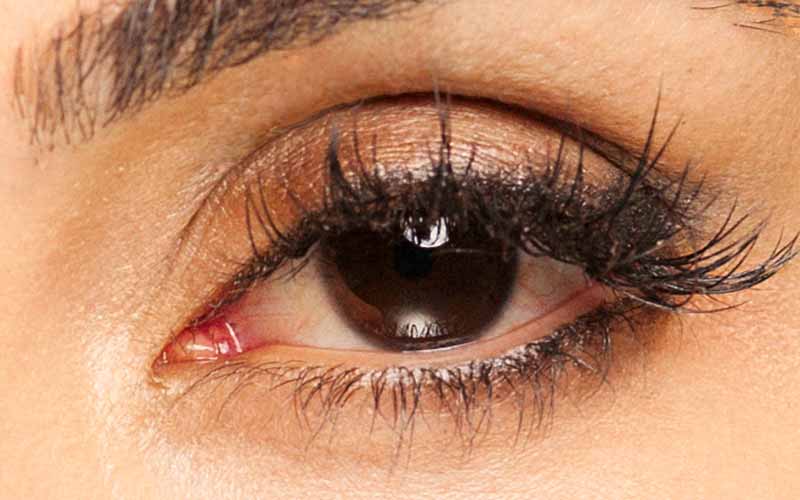Blepharoplasty
 THE GOAL: to restore a smooth, youthful and natural well-rested look to eyes that droop, bag or have sagging skin due to aging or genetics.
THE GOAL: to restore a smooth, youthful and natural well-rested look to eyes that droop, bag or have sagging skin due to aging or genetics.
Terminology Notes

BLEPHAROPLASTY the collective term for eye rejuvenation procedures which include:
1. Upper Blepharoplasty to remove excess skin or ptosis (drooping) on the upper eyelid due to aging or genetics. The incision follows the crease of the eyelid where, once healed, the scar becomes practically invisible. About 20% of patients also need to have some fat taken away as well, while another 15% need fat added. The reason for this latter maneuver is to restore a youthful fullness to an otherwise hollow upper eyelid socket.

2. Traditional lower blepharoplasty (lower outside) to remove excess skin and, where necessary, pockets of fat under the eyes due to aging. The incision follows the lower lash line where it heals invisibly. There is also an incision behind the lower eyelid through which the surgeon can remove any excess fat. About 30 % of patients will need to get the fat “bags” reduced. Fat can be carefully transferred to the “hollows” below the eye to produce a smooth transition from the lower eyelid onto the upper cheek.
3. Lower lid pinch blepharoplasty simply to remove the excess skin without removing any fat. The incision follows the lower lash line where it heals invisibly. Only one stitch is required and healing is very quick.
4. Transconjunctival blepharoplasty (lower inside), usually done on younger patients with thicker more elastic skin who have congenital puffy under eye bags, to take away the under eye fat pocket without removing any skin.
Candidates for Eye Lifts
The most appropriate candidates for blepharoplasty are:
- 35 years old or older with a droopy, tired, aged appearance around the eyes
- Younger patients with inherited under-eye bags
- Asian patients who want a defined upper or “double” eyelid crease
- Patients with hollows around their lower lids, lending to their “dark circle” appearance
EXPECTATIONS
Of course, individual results can vary, but eyelid surgery can deliver a smooth, fresh, rejuvenated look that will last for many years. However, a blepharoplasty cannot stop the effects of time, gravity and changes in weight. That said and depending on the patient, it may be safe to do a subtle revision blepharoplasty as years go by.
What blepharoplasty cannot do is:
- Lift sagging eyebrows
- Lighten dark circles
- Eliminate crow’s feet
NEW TECHNIQUES VS. OLD THINKING
Blepharoplasties have become significantly more sophisticated than in generations past, resulting in a far more subtle, natural outcome than ever before.
These breakthroughs include:
- HOLLOW NO MORE: Though the finished outcome was clean and smooth, older blepharoplasties often resulted in sunken, skeletal look because too much fat was removed along with the excess skin. Today, we’re far more aware that it is plumpness and volume that impart a look of youth and refreshment. In fact, sometimes fat needs to be added, particularly in the tear trough.
- CONSIDER THE BROW LIFT: A large number of patients with sagging over the eyes think they need an upper blepharoplasty when in fact what’s required is a brow lift instead. Today, we’re much more accurate in our assessment of facial structure – particularly when setting and controlling the shape of the brow – and how best to improve it. Dr Haworth’s technique of endoscopic browlifts is designed to avoid the “surprised” look and instead, create a brow that is elevated in a glamorous lateral arc.
- INTACT MUSCLE: Older blepharoplasties often removed muscle tissue under the lower eyelash line which resulted in unnatural, deadened expression. Today the muscle is usually left alone, using a subtle lid pinch technique to tighten lower eyelid skin that looks totally youthful and natural.
- SINGLE STITCH CLOSURE: Dr. Haworth’s capabilities with fine, precision work has lead to his signature blepharoplasty suture technique of closing incisions with a single, invisible stitch which he will remove 5 days after surgery.
Pre-Operative Consultation
The pre-operative consultation is where we check your tear production, review your health, finalize the details of your procedures, order appropriate tests, prescribe medications, discuss your aftercare and answer any questions you may have.
To the consultation, we ask that you bring the following:
- Contact lenses or glasses if you wear them.
- The results of your latest eye exam from your ophthalmologist. If you haven’t had one lately, you may be asked to schedule one in advance of the pre-op appointment.
- Any appropriate health records related to the list of conditions noted above.
CRITICAL PRE-OP CAUTIONARY NOTE
It is absolutely essential that that you avoid all aspirin, aspirin-related, ibuprofen or blood-thinning medications for 2 full weeks prior to your surgery. In your pre-op consultation, we will give you a complete list of these drugs. For our patients, we also provide a password-protected link allowing you to download the list onto your computer. If in doubt about a specific medication, do not take it, call the office first and ask if it is on the forbidden list.
Operation and Recovery Logistics
SURGERY DURATION: One to 2 hours, depending on the procedure.
ANESTHESIA: Local or sedated, depending on the patient and what other procedures you are having done at the same time. Either way, you will be comfortable and will not feel any pain.
SUTURES REMOVED: Depending on the procedure, from 5-7 days.
As you wake up from surgery, your eyelids may feel slightly sore and tight as the anesthesia wears away, but most feel none of this. However, lubricating ointment and prescription painkillers will easily control the discomfort.
RECOVERY
You may don eyeglasses or sunglasses immediately after surgery. Gradually, you will be able to resume to your normal activities:
- 2-3 days – Read or watch television
- 5-7 days – Resume wearing makeup
- 7 days – Be out in public, back to work, may resume wearing contact lenses
- 2 weeks – Resume strenuous exercise
During healing, you may experience:
- Bruising that looks like a black eye usually reaches its peak during the first week, and generally takes about 7 to 14 days to completely fade away
- Dryness, itching or burning. We can prescribe eye drops to ease all of these
- Excessive tearing
- Temporary changes in your eyesight, such as blurring or double vision
- Sensitivity to sunlight, wind, and other irritants. We advise all our patients to wear sunglasses with UV protective lenses to help with this
Post-Operative Care
You will need to keep your activities to a minimum for at least 3 to 5 days. We will remove the sutures from 2 days to a week after surgery. However, leisurely walks out of the sun can be beneficial.
We’ll show you everything you need to know for your aftercare at home that will include:
- Cleaning your eyes which may be gummy when you wake up for a week or so
- Keeping your head slightly elevated above your heart-level – even when sleeping – for 7 days
- Applying cold compresses and soaks for 48 hours to reduce swelling and bruising
- Taking recommended homeopathic medicines
To optimize and accelerate healing, we also recommend BIOPTRON™ light and hyperbaric oxygen treatments.
RARE COMPLICATIONS DURING HEALING MAY INCLUDE:
- Difficulty in fully closing the eyes during sleep. In extremely rare cases this may be permanent.
- Ectropion, that is a pulling down of the lower lids. Further surgery may be needed to correct this. Refer to “canthoplasties” above.
MINIMIZING SCARS
Day by day, the swelling and discoloration around your eyes will gradually subside. Though the scars may appear “ropey” for a month or two or remain slightly pink for two months or more after surgery, they’ll eventually fade to a nearly invisible pale line.
Visible scarring can be kept to a minimum by:
- Following all post-op instructions to the letter
- Using an appropriate scar treatment gel
Risks and Challenges
No surgery is entirely risk-free. However, both our staff and facilities have the highest possible qualifications to produce a happy outcome.
While risks and complications are extremely rare, be aware that those for a blepharoplasty can include:
- Eyelid retraction resulting in a drooping lower eyelid
- Dry eye
- Minor visible scarring at the corners, especially in Asian patients or those with a natural almond eye shape
Conditions that make blepharoplasty more of a challenge and may require additional information from the appropriate medical specialist include:
- Thyroid disorder such as hypothyroidism and Graves’ disease. The good news is that we have had successful results correcting the bulging eyes that occasionally occur here
- Dry eyes unable to produce tears
- Cardiovascular and circulatory disorders
- Blood pressure that is too high or too low
- Diabetes
- Detached retina or glaucoma



